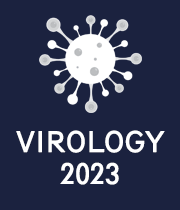HYBRID EVENT: You can participate in person at Rome, Italy or Virtually from your home or work.
Viral Respiratory Diseases
Viral Respiratory Diseases
Respiratory viruses are the most common cause of sickness in humans, with considerable morbidity and mortality rates around the world. Community-based investigations undertaken over the last five decades or so demonstrate that common respiratory agents from several virus families are the primary etiological agents of acute respiratory infections (ARIs). The severity of viral respiratory illness varies, but it is more common in elderly people and new-borns. Despite the fact that respiratory viruses cause a wide variety of diseases, there are now just a few preventive or therapeutic strategies available. Recent discoveries in respiratory virus molecular and cell biology, on the other hand, should lead to the development of helpful therapies.
- Lung Infections
- Lung Transplantation
- Paediatric Respiratory Diseases
- Pleural Cavity Diseases
- Pulmonary Vascular Diseases
- Respiration Physiology
- Respiratory Medicine
- Respiratory Tract Infections
- Respiratory Tumours
- Restrictive Lung Diseases

